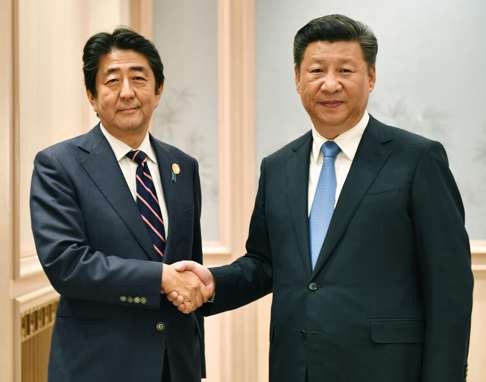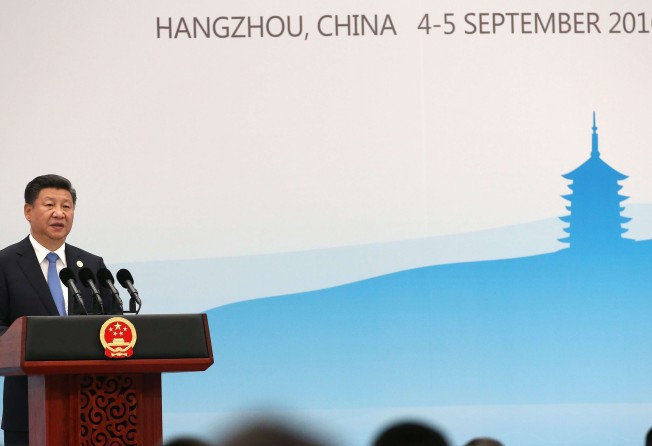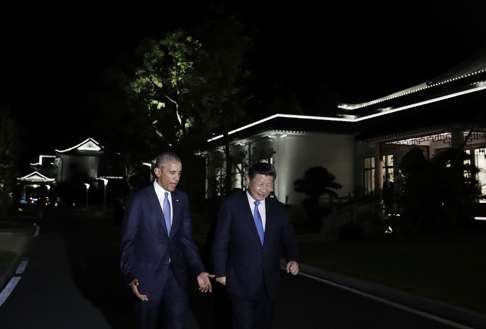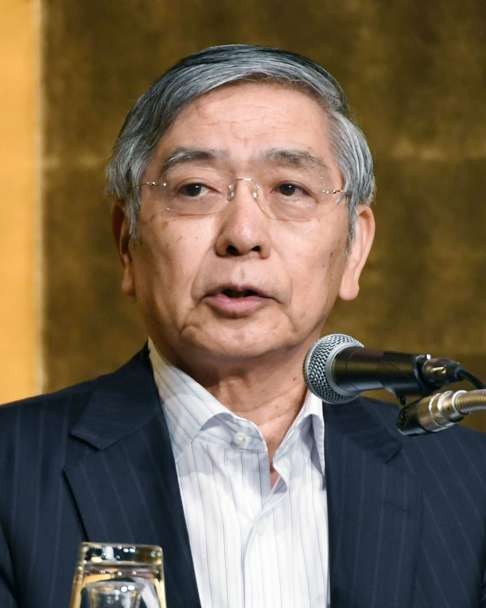
When it comes to the G20, China is in better shape than many

The China G20 website emphasises Hangzhou is the Capital of Leisure. But with the global economy “at a crucial juncture,” as China’s President Xi Jinping said on Sunday, world leaders who convened there earlier in the week for this year’s G20 Summit had little time to relax.
“2016 will be the fifth consecutive year with global GDP growth below its long-term average of 3.7 per cent (1990-2007), and 2017 may well be the sixth,” warned International Monetary Fund (IMF) Chief, Christine Lagarde on Thursday.
From an economic standpoint “you could argue that the Chinese transition is proceeding reasonably well,” Lagarde said, but IMF analysis, released last month, forecast that growth in China’s real gross domestic product will slow to 5.9 per cent in 2020 from 6.9 per cent in 2015.

China’s “medium-term outlook is clouded by continued resource misallocation, high and rising corporate debt, structural excess capacity, and the increasingly large, opaque, and interconnected financial sector,” the IMF assessment said.
Yet while no one should underestimate the challenges facing China’s policymakers, China is arguably better-placed than many of the G20.
Other attendees at Hangzhou, such as Brazil’s President Michel Temer and Russia’s President Vladimir Putin, would likely prefer China’s economic problems to their own.
As Lagarde noted on Thursday, while, in 2015, the economies of China and India both expanded “between 7-7½ per cent” gross domestic product “contracted by close to 4 per cent” in Brazil and Russia.
It remains to be seen if President Xi’s ambition for G20 to be “an action team, instead of a talk shop” is ultimately fulfilled
Elsewhere, another G20 economy, Canada, shrank by an annualised 1.6 per cent in the second quarter of 2016, its worst performance since the same period in 2009, said Statistics Canada on August 31.
As for the United States, “US economic growth is weak yet the labour market is tight,” wrote Albert Edwards of French bank Societe Generale last week, ahead of Friday’s release of US employment and income data that then came in below analysts’ expectations. The jury therefore remains out on the timing of a further rate hike by the US Federal Reserve.
“The US economy continues to flirt with stall speed,” in Edwards’ opinion.
Meanwhile, the United States now finds itself at odds with the European Union (EU) given the EU’s pursuit of Apple over its tax arrangements. At the same time EU-US negotiations for a proposed transatlantic trade and investment partnership (TTIP) appear in trouble, even though Hangzhou attendee, German Chancellor Angela Merkel has previously said TTIP was “absolutely in the EU’s interests.”

Within the EU, the euro zone economy is hardly flourishing. Economic growth in the currency bloc rose just 0.3 per cent in the second quarter as expansion in Germany was offset by other poor data.
Another Hangzhou attendee, Italian Prime Minister Matteo Renzi, won’t need reminding that Italy, the euro zone’s third largest economy, managed no economic growth at all in the second quarter.
And yet, TTIP aside and even though the European Union has its share of economic challenges, the EU seems introspective.
“If [China] is ultimately unwilling to offer reciprocal access to its own market, China cannot assume that it will indefinitely continue to enjoy open and unhindered access to the EU’s,” said the European Union Chamber of Commerce in China on Thursday. The Chamber is in its own words “recognized by the European Commission and the Chinese Authorities as the official voice of European business in China.”

Yet “the country hit most often by foreign protectionism is China – its commercial interests have suffered 2,429 blows in the seven years from November 2008 to October 2015. Just under half of all protectionism implemented since the [global financial] crisis began has harmed China’s commercial interests,” said last November’s 18th Global Trade Alert Report.
Japan suffered far fewer protectionist blows than China over the same period which may provide a modicum of comfort for Japanese Prime Minister Shinzo Abe. But the reality is that Japan’s economy only expanded by 0.2 per cent in the second quarter despite the best efforts of the Bank of Japan whose creativity in monetary policy easing seems to know no bounds.
In comparison to the problems facing a lot of the attendees at Hangzhou, those potentially associated with the IMF’s forecast of a slowdown in China’s economic growth to 5.9 per cent in 2020, might seem less forbidding.
On the face of it, the Hangzhou G20 communique seemed to produce more than just platitudes. But it remains to be seen if President Xi’s ambition for G20 to be “an action team, instead of a talk shop” is ultimately fulfilled.
Either way, China’s own economy, though not without its own problems, still looks in better shape than the economies of many of the G20 who convened in the Capital of Leisure.